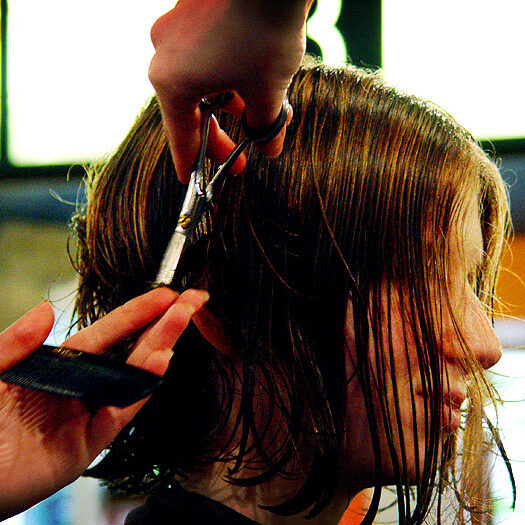Words by Anouk de Plaa, Team Member, HBCL
This month, I am writing about a human behaviour observation from my day-to-day life that I find interesting. Recently, I got a new haircut; not a life-changing event obviously, but something that gives me a little confidence boost and makes me feel better about myself.
However, the process of getting the haircut is a different thing; very enjoyable on the one hand, a massage chair and a head massage, yet an awkward social struggle on the other hand. It seems very rude not to speak to the person cutting your hair, but this poses a challenge for an introvert like me, who struggles with small talk at the best of times. There is nowhere to go, you are stuck in the chair for the time it takes to get your hair cut, and I have found that hairdressers and I often seem to have very little in common. This leads to a string of uninteresting conversational topics, and we both seem relieved when the haircut is done, and I can finally leave the chair.
What fascinates me while getting my hair cut is listening to all the conversations going on around me. I have overheard people sharing the most intimate or emotional details about their lives with a hairdresser they have never met before. I wonder what brings this about? Perhaps something about someone being so close to you and touching your hair makes people open up completely.
Sometimes it seems like a session with a psychologist or someone’s most intimate friend is taking place in the space of one haircut. I guess a requirement of working as a hairdresser is to be able to listen and talk to people all day long. However, I still feel there is a difference between just having nice chats with people rather than having to listen to very emotional, intimate life stories.
So, how is this for hairdressers themselves? I once asked a hairdresser how she felt about people opening up to her and sharing so much. She honestly admitted that she has sometimes felt uncomfortable with the stories people shared with her but did not know how to handle these situations.
Hairdressers can play a very important part in providing social contact for people that are lonely or in need of a chat. However, it should never be up to them to act as professional counsellors. Even though it can feel very good to share experiences or struggles with a relative stranger, after which you can just leave and get on with your life, we need to be aware that there is another person involved who might be impacted by what we tell them. Should hairdressers get training on moving people away from very intense conversational topics and how they can tell people to get professional help, as they are not the ones that can offer this?
If you would like to find out more about human behaviour change science and the work we do, do get in touch – we would love to hear from you.

